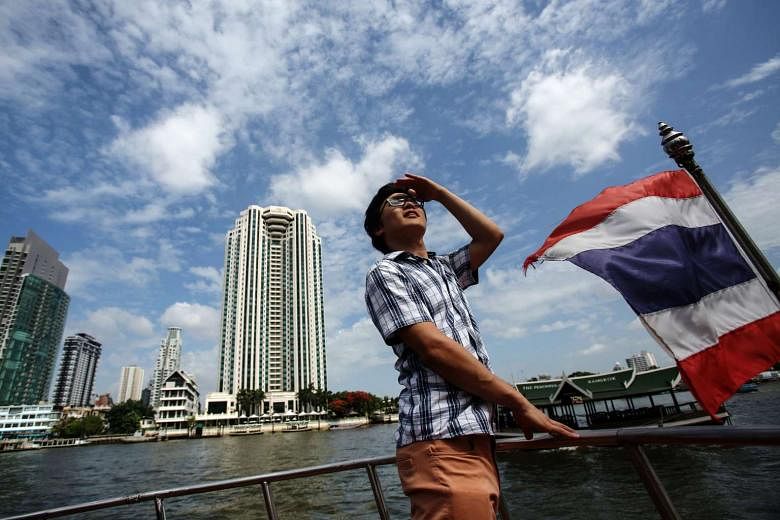In its editorial on Oct 1, 2015, The Nation says that with signs of suppression all around, Thais are understandably upset about the government's plan to further constrict access to the web.
A tumult of concern has justifiably greeted the government's plan to channel Internet access in Thailand through a "single gateway" under its control.
Ostensibly a means of shutting out "inappropriate websites" and other information from abroad deemed undesirable, the gateway idea has raised hackles among e-commerce entrepreneurs, online-based activists and Net users in general.
The Cabinet has ordered the Ministry of Information and Communications Technology to set up this single gateway as a tool to control incoming data.
To a large extent it will duplicate the much-denigrated "Great Firewall of China" through which Beijing minutely filters global Internet traffic.
The main fear here is that the plan will allow the military to increase censorship, further undercutting citizens' fundamental right to freedom of speech.
That in turn will devalue Thailand's regional status as an IT hub.
Online businesses fret that the country's fast-growing Internet-based commerce might be significantly hampered by bottlenecks in the exchange of information.
Pawoot Pongvitayapanu, an expert in the field, has warned that, while the single gateway would allow easier and more effective filtering of content, it's risky because of potential slowdowns and downtime, which would cause enormous economic damage.
What is missing from the debate, and fuelling criticism, is adequate reassurance from the government.
Information and Communications Technology Minister Uttama Savanayana, Deputy Premier Prajin Juntong and government spokesman Maj-General Sansern Kaewkamnerd have tried and failed in turn to allay growing concern, and in fact have only added to suspicions that stricter state control is imminent.
Sansern has said the government wants to foster a "digital economy" and boost e-commerce, but a balance must be struck between the demands of national security and the public's right to information.
Prajin sees the scheme as a way of coordinating diverse regulatory measures under a single integrated entity.
Uttama cites a feasibility study on establishing a "neutral" Internet exchange through a joint private-public corporation, and says the government is only interested in overseeing the practice and protecting citizens, certainly not violating anyone's basic rights.
Undermining all of these arguments is the ugly fact that the government is already deeply involved in online censorship, from mundane porn sites to the editorial criticism of Britain's Daily Mail newspaper to lofty domestic political discourse.
All talk of "integration" and "consolidation" rings hollow when Thai citizens voicing their views online are threatened with paramilitary legal action.
Objections to the single gateway are not easily dismissed. A petition posted on the website Change.org had, as of yesterday, gathered more than 90,000 signatures.
Its stated concern is possible tougher government control over cyberspace, reaching well beyond the routine blockage of sites deemed threatening to national security or public morals.
Even if, as polls indicate, almost half of Americans are unfazed by Washington monitoring their phone calls and Web use, there is widespread fear everywhere else in the world that state spying has evolved too far.
Thais for the most part are prepared to give the government the benefit of the doubt in light of events in recent years, but it first needs to provide plausible justification for this latest move. That rationale is as yet lacking, and meanwhile online critics are being routinely silenced. The plan, as it stands, just doesn't add up.
The Nation is a member of The Straits Times media partner Asia News Network, a grouping of 22 newspapers seeking to promote coverage of Asian affairs.

